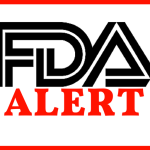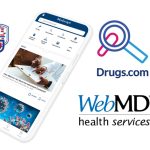What Is The First Sign Of Drug Toxicity?

Drug toxicity refers to the harmful effects caused by the exposure or consumption of drugs or medications. It occurs when a drug surpasses the body’s ability to process or eliminate it properly, leading to adverse reactions and potential damage to organs or bodily systems. Drug toxicity can result from various factors, including taking an excessive dose, prolonged use of a drug, interactions with other substances, individual sensitivity or allergic reactions, or impaired drug metabolism due to underlying medical conditions.
Drug toxicity can affect different organs and systems in the body, such as the gastrointestinal tract, central nervous system, cardiovascular system, respiratory system, kidneys, or liver. The specific symptoms and severity of drug toxicity can vary widely depending on the drug involved, the dose, individual susceptibility, and other factors.
In some cases, drug toxicity can manifest as immediate and severe symptoms, such as acute overdose or allergic reactions. In other instances, it may develop gradually over time due to chronic use or accumulation of a drug in the body. New data indicates that death from regulated and unregulated toxic drugs is on the rise.
If drug toxicity is suspected, it is crucial to seek immediate medical attention or contact a poison control center. Prompt identification and appropriate management of drug toxicity are vital to prevent further harm and ensure the best possible outcome.
What Is The First Sign Of Drug Toxicity?
The first sign of drug toxicity can vary depending on the specific drug and individual factors. However, some common symptoms that may indicate drug toxicity include:
1. Gastrointestinal symptoms: Drug toxicity can often lead to gastrointestinal disturbances. Nausea and vomiting are common early signs. The individual may experience a sense of discomfort or queasiness in the stomach. Diarrhea or loose stools may occur, and abdominal pain or cramping can be present.
2. Central nervous system effects: Many drugs can affect the central nervous system, leading to various neurological symptoms. Drowsiness and fatigue are frequent early signs of drug toxicity. The person may appear excessively tired or have difficulty staying awake. Confusion and disorientation are common, and the individual may have trouble concentrating or making decisions. Dizziness or lightheadedness can also be present. In severe cases, seizures or loss of consciousness (coma) may occur.
3. Cardiovascular symptoms: Some drugs can have adverse effects on the cardiovascular system. Rapid or irregular heartbeat, known as tachycardia or arrhythmia, can be a sign of drug toxicity. The individual may feel palpitations, a sensation of the heart racing or skipping beats. High blood pressure (hypertension) or low blood pressure (hypotension) can also occur, leading to symptoms such as headache, dizziness, or fainting.
4. Respiratory problems: Drug toxicity may affect the respiratory system and cause breathing difficulties. The person may experience shortness of breath or have trouble breathing deeply. Rapid breathing (hyperventilation) or shallow breathing can occur. Wheezing, a high-pitched whistling sound during breathing, might be present in some cases.
5. Skin changes: Skin reactions can be indicative of drug toxicity, particularly in cases of allergic reactions. Rashes may develop, appearing as red, itchy, or swollen patches on the skin. The individual may experience hives, which are raised, itchy bumps. In severe cases, there can be swelling of the face, lips, or tongue, known as angioedema.
6. Kidney or liver problems: Certain drugs can cause toxicity specifically in the kidneys or liver. Changes in urine output may occur, such as decreased urine production or the presence of blood in the urine. Dark urine, which can appear brown or tea-colored, might be observed. Drug-induced liver toxicity can lead to jaundice, where the skin and eyes turn yellow. Abdominal pain or tenderness in the right upper quadrant of the abdomen can be present.
It’s important to remember that these signs and symptoms can vary depending on the specific drug, the dose taken, individual factors (such as age or underlying health conditions), and the duration of drug exposure. If you suspect drug toxicity, it is crucial to seek immediate medical attention or contact a poison control center for guidance.
What to do in you suspect drug toxicity?
If you suspect drug toxicity in yourself or someone else, it is important to take prompt action. Here are the steps you should consider:
1. Assess the situation: Determine if the person is experiencing severe symptoms that require immediate medical attention. If they are unconscious, having difficulty breathing, or experiencing seizures, call emergency services right away. If the symptoms are milder or you are unsure, it is still advisable to seek medical assistance.
2. Contact a healthcare professional or poison control center: Call your local poison control center or emergency medical services to seek guidance. They have experts trained in managing cases of drug toxicity and can provide specific instructions based on the situation. Poison control centers can be reached 24/7 and are equipped to provide advice on potential drug interactions, overdose management, and treatment recommendations.
3. Provide necessary information: Be prepared to provide information about the person’s condition, including the drug or medication involved, the dosage taken (if known), the time of ingestion, and any other relevant details. This information will assist healthcare professionals in determining the best course of action.
4. Follow instructions: Follow the guidance provided by healthcare professionals or poison control center staff. They may instruct you to induce vomiting, administer activated charcoal (a substance that helps absorb toxins), or take other appropriate measures depending on the situation. Do not induce vomiting unless instructed to do so by a medical professional.
5. Seek medical evaluation: In most cases of suspected drug toxicity, it is essential to seek medical evaluation even if the initial symptoms seem to improve. Healthcare professionals can assess the individual’s condition, monitor vital signs, conduct necessary tests, and provide appropriate treatment. They can also offer guidance on any further steps to be taken or potential long-term effects.
Remember, it is always better to err on the side of caution when it comes to drug toxicity. If you are uncertain about the severity of the situation, it is best to seek medical assistance for a proper evaluation and guidance.
How To Prevent Drug Toxicity
Preventing drug toxicity involves taking precautions to ensure the safe and appropriate use of medications. Here are some measures you can take to minimize the risk of drug toxicity:
1. Follow medical advice: Take medications exactly as prescribed by your healthcare professional. Adhere to the recommended dosage, frequency, and duration of use. If you have any questions or concerns about your medications, consult your healthcare provider for clarification.
2. Educate yourself: Understand the medications you are taking, including their purpose, potential side effects, and interactions with other drugs, supplements, or foods. Read the medication labels, package inserts, and patient information leaflets provided with your prescriptions. Stay informed about any updates or warnings related to your medications.
3. Communicate with healthcare providers: Inform your healthcare professionals about all the medications you are taking, including prescription drugs, over-the-counter medications, herbal supplements, and vitamins. This will help them identify potential drug interactions and adjust their treatment plan accordingly.
4. Avoid self-medication: Consult a healthcare professional before starting or stopping any medications. Do not self-diagnose or self-medicate without appropriate guidance. Certain drugs can have harmful interactions or adverse effects, especially if you have specific medical conditions or are taking other medications.
5. Be aware of drug allergies: Know if you have any known drug allergies or sensitivities. Inform your healthcare provider about any previous adverse reactions to medications. This information will help them prescribe alternatives and avoid medications that could potentially cause an allergic reaction or drug toxicity.
6. Use a single pharmacy: Get your medications from a single pharmacy or healthcare provider. This helps them keep track of your medication history, identify potential interactions, and provide personalized advice. Inform the pharmacist about any over-the-counter medications or supplements you are taking to ensure they are compatible with your prescribed medications.
7. Store medications properly: Keep medications in their original containers and store them as instructed. Pay attention to specific storage requirements, such as temperature or light exposure, to maintain the efficacy and safety of the drugs. Keep medications out of reach of children and pets.
8. Dispose of medications properly: Safely dispose of expired, unused, or unwanted medications. Follow local guidelines for drug disposal, such as utilizing take-back programs or medication drop-off sites, to prevent accidental ingestion or environmental contamination.
9. Be cautious with alcohol and drug interactions: Alcohol and certain drugs can interact adversely, leading to increased toxicity or side effects. Consult your healthcare provider about the potential risks and limitations of alcohol consumption while taking specific medications.
10. Stay informed and ask questions: Regularly consult with your healthcare provider, pharmacist, or other trusted sources to stay updated on medication safety, new research, and potential risks. Ask questions about any concerns you have regarding your medications.
By following these preventive measures and maintaining open communication with healthcare professionals, you can significantly reduce the risk of drug toxicity and ensure the safe and effective use of medications.





